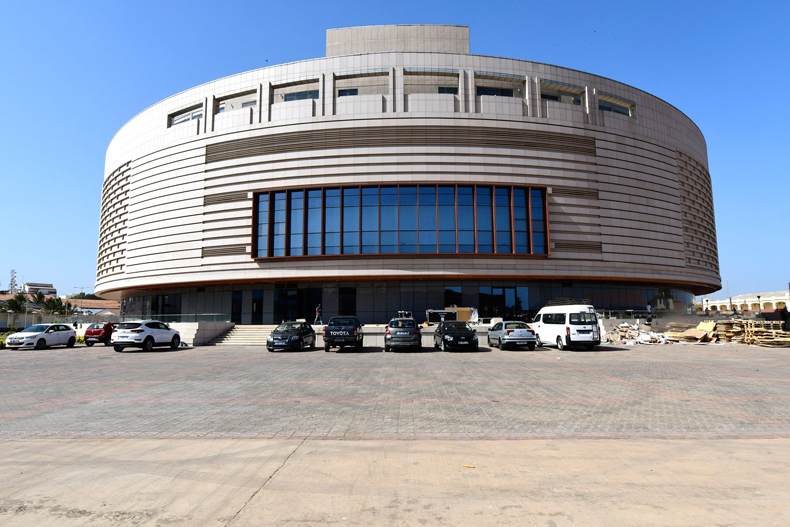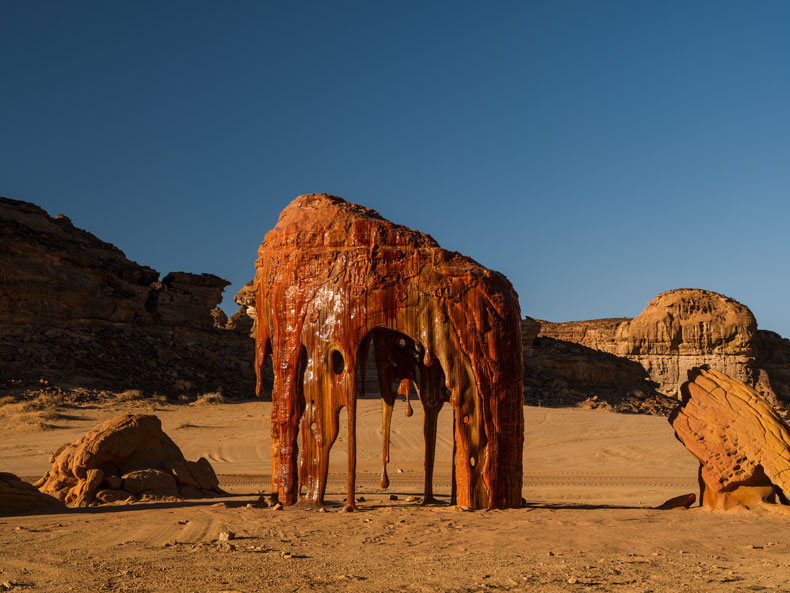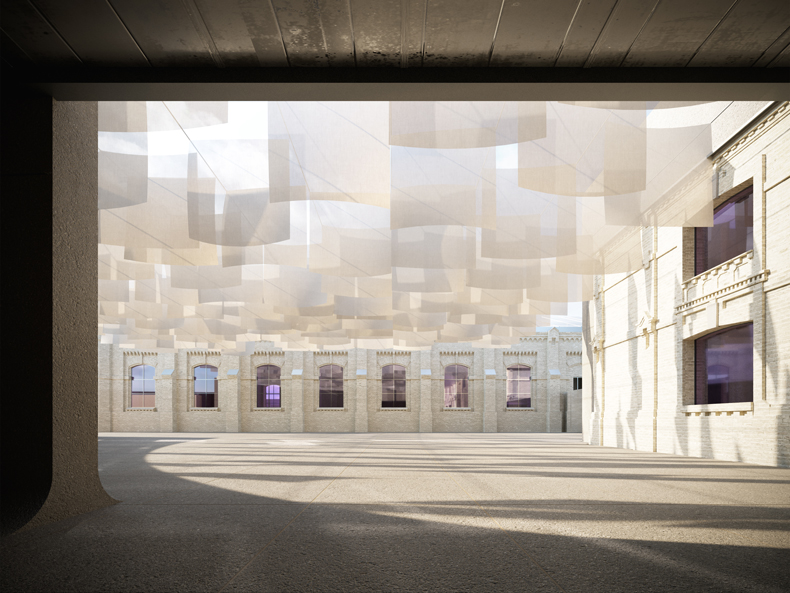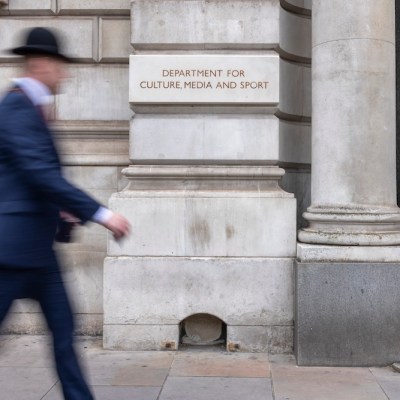From the September 2025 issue of Apollo. Preview and subscribe here.
‘Power is like love: easier to experience than to define or measure, but no less real for that,’ wrote the political theorist Joseph Nye in his book Soft Power (2004) – its title a term he had coined earlier to describe a form of influence won through charm and seduction, rather than coercion or payment. Accordingly, one might call the UK Soft Power Council, an advisory body launched by the British government in January, an exercise in love-bombing. Bringing together 26 heads of institutions, including the British Council’s chief executive Scott McDonald, V&A director Tristram Hunt and the Royal College of Art’s pro-chancellor Peter Bazalgette, it aims to use the UK’s cultural, sporting, scientific and educational sectors to ‘boost UK economic growth and security’ – championing what it refers to as ‘a new, hard-nosed approach to soft power’. On its launch, David Lammy, the foreign secretary, said that it would ‘channel British expertise as we look to re-imagine Britain’s role on the world stage’.
This is notable for several reasons. Its name, for one thing, feels like a working title that accidentally made it into the final draft: countries have used Nye’s term for decades, but most don’t foreground their quest for power quite so plainly. Then there are the decades of disinvestment across the UK cultural sector and in its traditional engines of cultural diplomacy. In the same month as the new body was announced, McDonald warned that the British Council may have to shed hundreds of jobs and withdraw from up to 40 countries because of budget cuts. More recently, the BBC said that the World Service may have to close several stations around the globe.
When it comes to soft power, the UK is in many ways catching up. In 2024, a British Council report observed that, amid rising nationalism and geopolitical competition, ‘there is more alignment of soft power activities with foreign and economic policy goals, and less emphasis on shared global challenges’. In particular, it said, China and Russia have increased budgets for the Confucius Institute and Russkiy Mir respectively and are seeing favourability ratings in several countries rise thanks to the impact of their state broadcasters and online media. Britain’s new council shows that the UK also wants to use culture in a more instrumental way to achieve its strategic goals.
This shift comes as many Western countries have stepped away from their late 20th-century rhetoric around liberal democracy, aid, openness and collaboration. Cultural diplomacy has given way to culture wars, embodied by US withdrawal from UNESCO for the third time since 1984. As Burcu Baykurt, co-editor of Soft-Power Internationalism: Competing for Cultural Influence in the 21st-Century Global Order, puts it: ‘We ended our study in 2015 [the year before Trump was first elected and the Brexit referendum] because the illusion of a liberal international order – if it ever existed – was over.’ One could add that the so-called order was Western at its core, born of colonialism and sustained through conditional aid and military intervention. As Baykurt says: ‘The end goal of soft power was to open up markets and trading relationships.’

The British Council’s report pointed to diminishing state support for cultural diplomacy in many developed economies, including the UK, Germany, Japan and the United States. But the emerging powers are more openly wielding culture as a tool for statecraft: nations that were once the targets of Western initiatives now pour billions into museums, heritage initiatives and cultural mega-projects, gaining confidence in an increasingly multipolar world. The internet also allows states to create direct channels for narrative-building, whether through concerted efforts like the ‘Qatar Creates’ branding campaign, comprising books, magazines and podcasts, or China’s more diffuse influence via TikTok.
What does the new cultural diplomacy look like? It depends on the country. China, India and Turkey are looking for ways to curate and market their ancient civilisations, while many Gulf states are building new contemporary art infrastructure. Post-Soviet nations are choosing between the remnants of what was imposed by the USSR and what it erased.
Across the board, despite the rise of the internet, big bucks continue to be spent on bricks and mortar. Saudi Arabia is transforming desert valleys into arts destinations like AlUla and commissioning major museums from international architects such as the London-based Asif Khan and the French-Lebanese Lina Ghotmeh. Qatar is continuing a spate of museum construction with new institutions by Herzog & de Meuron, Elemental and OMA, while planning the first new permanent national pavilion at the Venice Biennale for 30 years.
This month, a former diesel station in Tashkent, Uzbekistan, will reopen as the Centre for Contemporary Art, a government-funded complex for exhibitions and artist residencies. This precedes a landmark event: November’s 43rd UNESCO General Conference in Samarkand, the first time the gathering has been held outside Paris. For Gayane Umerova, chair of the Uzbekistan Art and Culture Development Foundation, culture is a strategic investment in national pride and youth engagement. ‘Sixty per cent of our population are under the age of 30, and we need to tell them that there is culture here too,’ she says. ‘We want to create a creative economy and nurture local designers.’ Her team is thinking beyond the traditional networks of cultural exchange. ‘We’re building relationships in Morocco, Latin America and Japan – in places where we may not even have embassies.’ Such ‘South-South’ diplomatic efforts that bypass the West are redrawing the global network of cultural influence, mirroring what is happening across Africa, Asia and Latin America. Initiatives such as the African Union’s plans for a Great Museum of Africa in Algiers and a series of pan-African cultural festivals and fairs led by artists and collectors demonstrate regional and diasporic cooperation too.

The new global power balance this implies is not necessarily any more benign. For one thing, there is a clash between the political values of autocratic governments and the critically minded art they promote. Uzbekistan has eased visas and lowered taxes on the creative sector, yet remains an authoritarian state. Saudi Arabia’s engagement with contemporary artists who speak truth to power – such as Igshaan Adams, whose woven tapestries address state oppression and apartheid in South Africa, and Wael Shawky, whose films and performances explore national mythmaking and religious authority – sit uneasily with restrictions on human rights. In Qatar, the exploitation of migrant workers building stadiums for the 2022 FIFA World Cup was extensively documented. But the friction between emancipatory aesthetics and authoritarian politics is a structural feature of soft power: Western states also foster critical art while silencing dissent.
Culture can also be deployed as part of a more concerted political project. Under its Hindu nationalist leader Narendra Modi, India is partnering with France Muséums – the agency behind the Louvre Abu Dhabi – to transform two colonial-era government buildings in the heart of New Delhi into a massive national museum. Critics fear that this project will be part of the government’s wider effort to redefine Indian identity exclusively around Hinduism: official documents obtained by Indian media outlet The Wire show the government describing historic waves of migrants into the subcontinent as ‘invaders’, suggesting that the museum will reflect what it calls India’s ‘unbroken civilisational history’, rather than the country’s pluralistic, multi-faith heritage.
What are the likely effects of this shift? There’s always been a disconnect between public manifestations of culture and the authorities that fund them. In the heyday of the West’s soft power, its movies and music cried ‘freedom’ while its governments violently deposed foreign leaders and demanded market access in exchange for crisis loans. Today that moral stance is in danger of being further eroded by chauvinist nationalism, double standards in the handling of international conflicts and continuing US domination – for instance, in its ownership of much of the world’s internet infrastructure.
When today’s emerging powers accuse their Western critics of hypocrisy, they have a point. ‘There’s a tendency among certain countries you might call illiberal to call out the contradictions in Euro- and US-centric Western ideals,’ says Baykurt. But, she adds, for authoritarian leaders it’s also a way of cementing power at home and abroad: In Russia, for example, Putin casts himself as a defender of traditional values against alleged Western decadence, while Turkey’s Erdoğan decries Europe’s Islamophobia as he jails his political opponents.

New state-led partnerships are also an extension of established practice. China is ramping up cultural activities in Africa via a UNESCO partnership signed this year to safeguard heritage across the continent and financial support for projects such as the Museum of Black Civilisations in Dakar, Senegal. China has long framed its own approach to international relations as a non-interventionist alternative to the presence of former colonial powers, but the boundaries between culture, commerce and politics are porous here, as they have long been elsewhere.
Take France Muséums, which is using its expertise to support the projects of other nations rather than promoting France directly. Its chief executive, Hervé Barbaret, readily acknowledges that its work – which today tends to focus on the Gulf and Asia – sits within the realm of international diplomacy: ‘Museum expertise on an international level is a tool of soft power. As our name suggests, we are clearly a kind of avatar of French museums.’ Hervé frames his organisation’s remit as technocratic: ‘I’m transparent that a museum embodies values – but [for us] these values are not political or ideological. We believe in universality, in removing the hierarchy between various types of discipline and in a dialogue between artistic artifacts. More than that, we try to not be involved.’ That may be, but consider the Louvre Abu Dhabi: the deal was signed in 2007. Two years later, France opened a permanent military base with 500 troops in the UAE – its first new foreign installation in 50 years and its first outside French or African soil.
Where does all this leave the UK? The recent announcement that France is to loan the Bayeux Tapestry to Britain was signed at the same time as the two countries agreed to co-ordinate their nuclear arsenals – an agreement that acknowledges their relative weakness in today’s world. The Soft Power Council has revealed little of its strategy, but its framing suggests a nostalgia for an era that no longer exists, as global power disperses beyond the reach of any advisory panel. One idea already mooted is for the council to deploy the royal family as ambassadors for Brand UK.
Culture, however, is also a force of its own. Even without major state programmes, for example, African countries are driving global movements in art, music and film – and Africa’s young population will only deepen that influence. In the end, the most powerful forms of expression are those that states cannot script and control: diasporas carrying stories across borders; memes, music and movements that lie beyond the realm of conventional ownership; direct efforts to restitute museum objects of significance; and in artists and thinkers challenging established norms. However bumpy and challenging, that’s the real path of cultural evolution.
From the September 2025 issue of Apollo. Preview and subscribe here.


